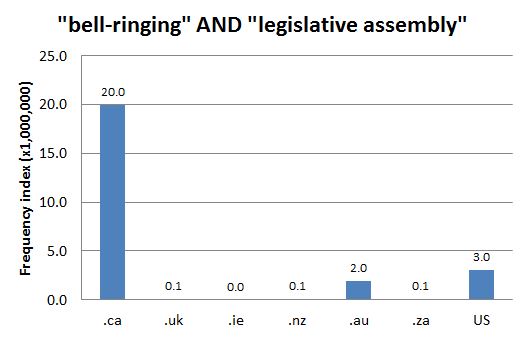DCHP-2
bell-ringing DCHP-2 (June 2016)
n. — Politics
the ringing of bells to call members of a legislative assembly to a vote.
Type: 5. Frequency — In Canada, and other countries governed by the British parliamentary system (the Westminster system), bell-ringing calls members to vote when a recorded vote (also called a recorded division) is required. All other work stops while members make their way to the appropriate chamber. The party Whips (members who are in charge of getting members to vote) are expected to appear at the end of the bell-ringing to bow to each other and the Speaker, signalling they are ready to vote.
In the Parliament of Canada bell-ringing now has a maximum length of either 15 or 30 minutes, depending on the type of motion and if the vote has been scheduled or not. These time limits were set after an episode in March 1982, where the bells rang continuously for over two weeks because the Opposition Whip refused to enter the Chamber (see the 1982 quotation; see also Parliament of Canada reference). The term is used throughout the Commonwealth, but has cultural significance in the North American context and, as Chart 1 shows, is more frequent in Canada than elsewhere.
See also COD-2, s.v. "bell-ringing", which is marked "Cdn".
